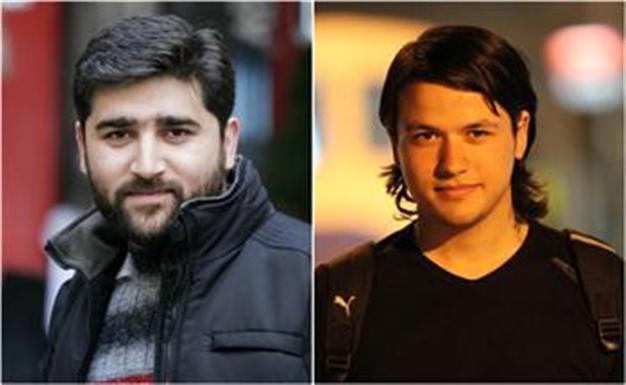Freed Turkish journalists arrive from Iran
ANKARA - Reuters

Turkish journalist Adem Özköse (L) and Hamit Coşkun are missing in Syria. AA photos
Two Turkish journalists who went missing while reporting on the uprising in Syria two months ago were released on Saturday with Iran's help, Foreign Minister Ahmet Davutoglu said.The release of the pair demonstrated Iran's influence with its ally Syria, which lost Turkey's friendship when it cracked down on pro-democracy protests that erupted last year. Iran and Syria, both isolated by the West, have stuck by each other.
The two journalists were flown to Tehran, where they told Turkey's Anatolian news agency they were in good health and looking forward to being reunited with their families.
In remarks on his Twitter account, Davutoglu said the Turkish government was sending a plane to bring them home. His Iranian counterpart Ali Akbar Salehi had told him earlier that the journalists had been freed, he added.
"I have good news: our longstanding efforts have finally paid off. I just spoke to Iran's Foreign Minister Mr. Salehi. Hamit Coskun and Adem Ozkose, who haven't been heard of since they went to Syria, are on their way to Tehran at the moment," Davutoglu said.
Ozkose, 34, a reporter with Milat, a small Islamic-leaning startup newspaper, and freelance cameraman Coskun, 21, went missing in early March after sneaking across the border into Idlib, a northwestern province that has been the focus of an offensive by Syrian President Bashar al-Assad's forces.
Speaking to Anatolian from Tehran, Ozkose thanked fellow journalists for keeping their plight in the public eye.
"We thank everybody who worked to save us, to all our colleagues we sent our best regards to everybody," Ozkose was quoted as saying.
Hopes for their release soared after officials revealed on Thursday that Iran was acting as a go-between.
It was not immediately clear who had been holding them, but Syria had expelled foreign journalists in the early days of the uprising, and those who entered later to report the conflict had either crossed borders illegally, while the few that were allowed in by the Syrian authorities were kept under a close watch.
Turkey has closed its embassy in Damascus and halted flights to and from Syria.
Assad belongs to the minority Alawite sect, an offshoot of Shi'ite Islam. Iran is mostly Shi'ite, while most Turks and Syrians are Sunni Muslims.
Some 23,000 registered Syrian refugees live in camps in Turkey along its border with Syria, and an estimated 2,000 more are staying with Turkish relatives.
















